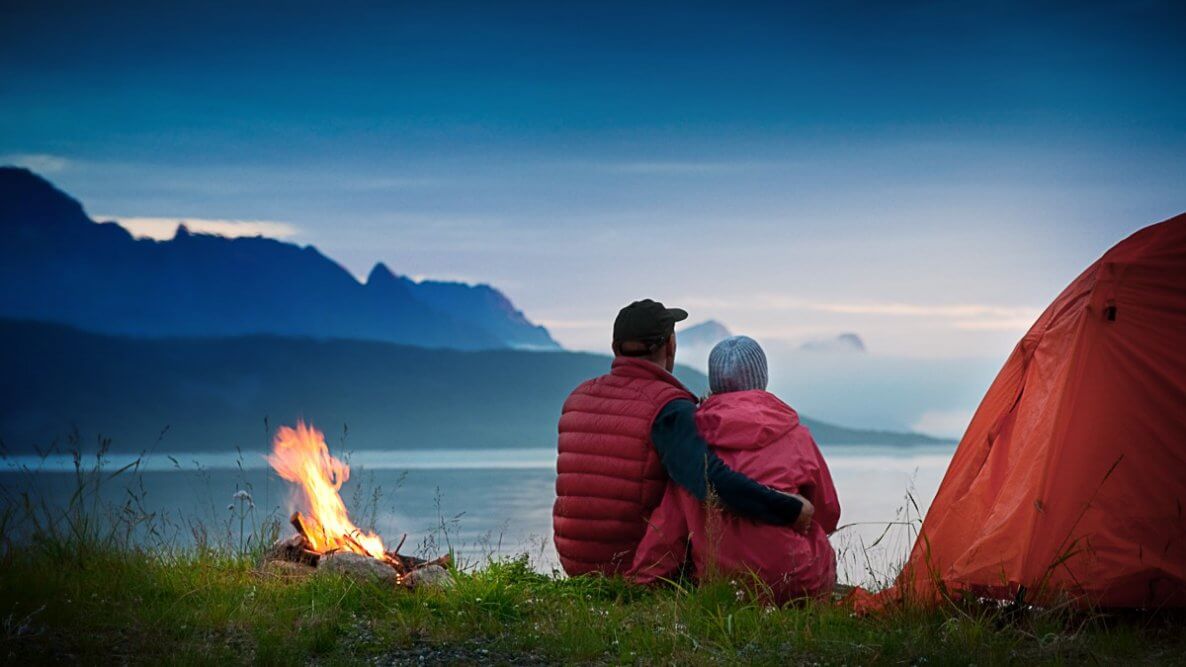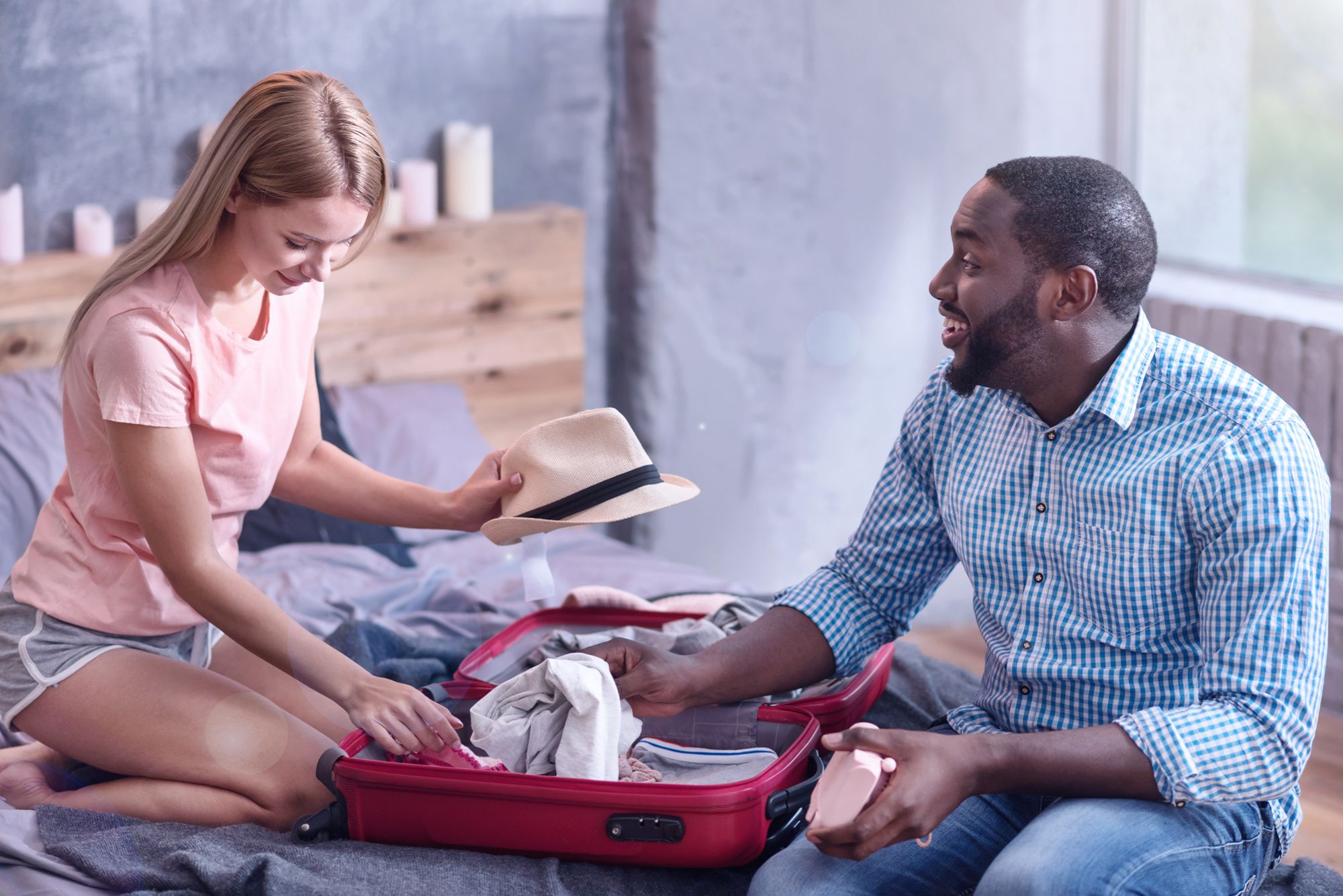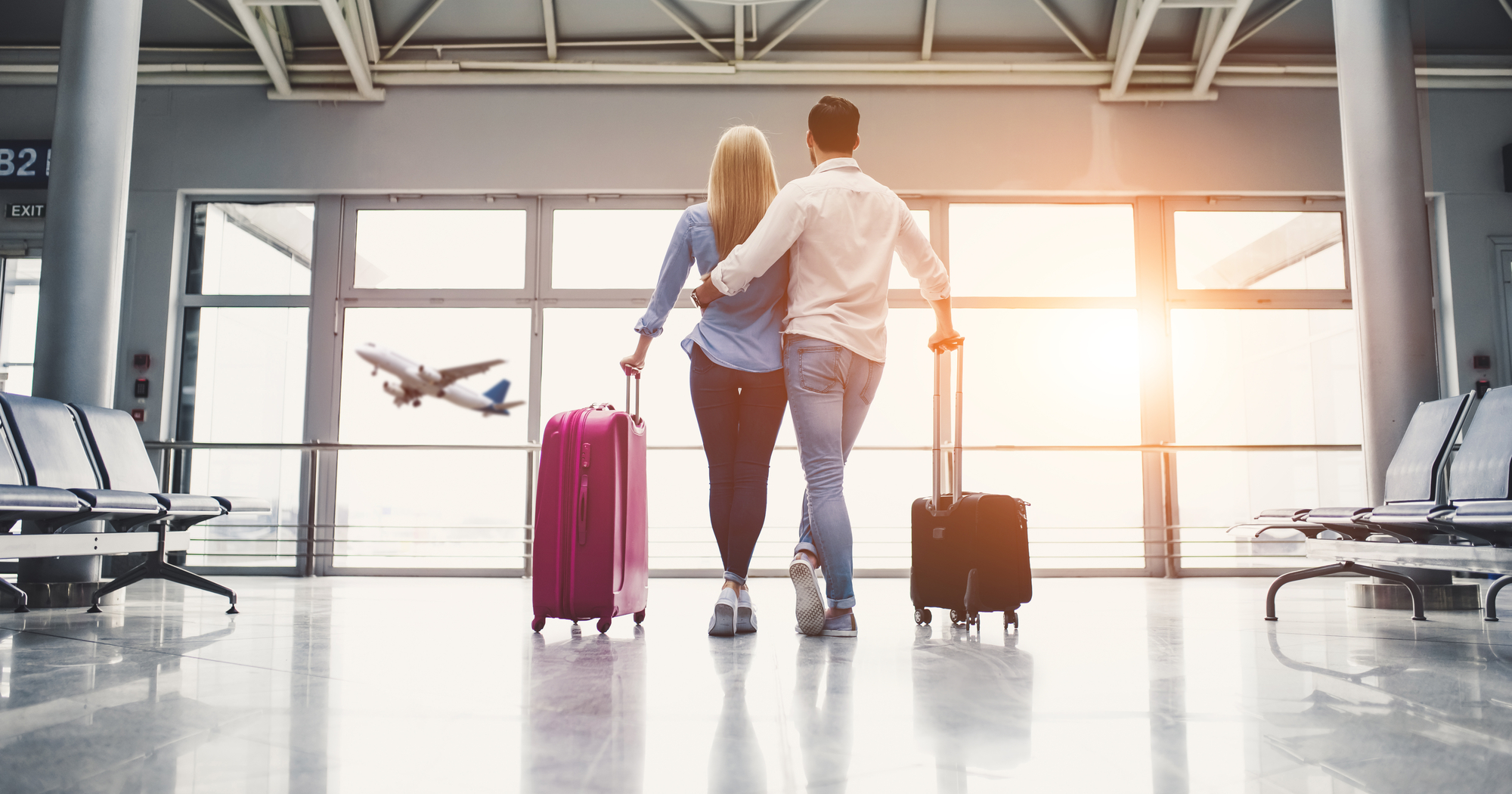Ultimate Guide to Romantic Couples Travel:
Best Countries, Tips, Safety, and Checklist

Why Should You Travel as a Couple?
Travel as a couple gives you focused time together. You leave routines behind and build your own rhythm. You pick places that fit your style, slow cities, beach towns, or quiet mountains. And you share the small moments that matter, sunrise walks, street food bites, and unhurried chats over coffee. Plus, you learn what makes both of you feel rested, playful, and calm. So the trip becomes a reset, not a sprint.
Travel also strengthens teamwork. You solve little problems together, a late train, a wrong turn, a fully booked restaurant. One person scouts cafés, the other books tickets. Then you swap. This balance keeps things fair and light. Also, you practice clear communication, budget, pace, and alone time. Because you agree on these early, you avoid friction later. And you return with sharper habits that carry into daily life.
Make it fun and keep it simple. Start with three wish list items each, then blend them into one plan. Add one shared splurge, a tasting menu, a spa hour, or a sunset boat. Also, leave open space for naps, swims, and slow walks. Set phone rules for dinners so you stay present. Then sprinkle small surprises, a note, a bakery stop, a view you found. So the trip feels personal, relaxed, and memorable. And you head home feeling close, rested, and already planning the next one.
What Should Couples Consider Before Booking?
Match destination to your shared rhythm. If you love food and art, pick walkable cities with markets and galleries. If you prefer nature, choose compact regions with short scenic drives. Next, time your trip for weather and crowd levels. Shoulder months often deliver mild days, open tables, and better rates.
Room layout shapes rest and mood. Choose a quiet room away from lifts, request blackout curtains, and confirm bed size in writing. If you need space, consider a small apartment with a separate lounge.
Plan travel logistics around energy. Choose nonstop flights where possible, or one generous layover. Land by midday so you check in, shower, and settle before dinner.
Finally, agree on money and privacy. Set a total budget, a daily cap, and a small personal fund for independent treats. Decide how much time you spend on photos and social media. This prevents friction and protects connection.

The Best Countries for Romantic Couples
Is Italy the classic choice for food, art, and coastal drives?
Italy delivers slow mornings and golden evenings. Rome and Florence offer walkable centers, world class art, and piazzas made for long coffees. Then Venice adds canals, quiet campos, and late vaporetto rides. Tuscany suits road trips, with hill towns, wineries, and agriturismos that feel private. Amalfi and Puglia bring coastal drives, boat days, and beach clubs. High speed trains link major cities fast, so you waste little time in transit.
For timing, aim for April to June or September to October for softer weather. Book timed entry for the Uffizi or the Colosseum, then pair culture with a long lunch. Choose boutique palazzi or countryside stays for quiet nights. Finally, add a cooking class or a truffle walk for a shared memory.
If a road trip through Italy sounds fun, you’ll need the right hire car.
Is France perfect for city romance and countryside calm?
France balances Paris energy with rural ease. Paris gives riverside walks, small museums, and late bistros. Then Provence brings markets, vineyard roads, and stone villages. The Riviera adds coastal paths, boat trips, and beach afternoons. TGV trains move you quickly, so multi stop routes stay simple. For neighborhoods, look at Saint Germain, Le Marais, or the Latin Quarter for evening strolls.
In Provence, base in Aix or Avignon for short drives and lavender in June and July. On the Riviera, Nice works well, with day trips to Antibes and Villefranche. Reserve key restaurants in advance, then picnic by the Seine or on a hilltop. Visit in April to June or September to October for milder days and better availability.
For a truly romantic getaway, find the perfect parisian hotel
Is Japan a serene escape with culture and onsen retreats?
Japan offers quiet temples, refined dining, and spotless trains. Kyoto sets the tone with gardens, tea houses, and lantern lit lanes. Then Hakone or Kinosaki deliver ryokan stays, onsen baths, and kaiseki dinners served in room. Tokyo balances skyline views, sushi counters, and calm neighborhoods for evening walks. Shinkansen travel keeps transfers short, while IC cards simplify local rides. Luggage forwarding eases movement between cities, so you travel light.
For timing, aim for March to April for blossoms or November for foliage. Learn basic onsen etiquette, then book a private bath for privacy. Choose rooms with tatami and futons for an intimate feel. Finally, plan early temple visits for quiet photos and unhurried time together.
Not sure where to start, we do offer bespoke quotes as well.
Is Greece great for sunsets, islands, and sea days?
Greece mixes ancient sites with island ease. Athens offers history, rooftop dinners, and lively food streets. Then the Cyclades bring whitewashed lanes, sunset terraces, and sailing days. Santorini gives views, yet crowds build by midday, so plan sunrise or late dinners. Naxos and Paros feel calmer, with beaches, tavernas, and short drives. Crete suits longer trips, with vineyards, gorges, and varied coasts.
Ferries run frequently in season, while short flights link hubs fast. Visit May to June or September to October for warm water and open tables. Book a modest car for flexibility, then explore coves and hill villages. Add a wine tasting for Assyrtiko, a caldera hike, and a private boat to a quiet beach.
Jet2Holidays have some amazing Greek island offers to choose from
Are the Maldives worth it for private overwater time?
The Maldives focus on privacy, clear water, and simple days. Overwater villas bring sunrise swims, reef access, and long views. Beach villas offer space, shade, and easier entry to the sand. Meal plans control costs, while non motorised sports are often included. Transfers use seaplanes or speedboats, so align flight times with daylight.
For timing, November to April is drier, while May to October brings value with brief showers. House reef quality matters, so check for strong snorkeling from the jetty. Plan a sandbank picnic, a sunset dhoni cruise, and a shared spa session. Dress modestly on local islands, while resorts feel relaxed. Finally, watch luggage weight limits for seaplanes and keep essentials in your hand bag.
It’s very easy to discover the right romantic flight + hotel package via our website

What Are the Top 10 Tips for Romantic Couples?
-
Set shared goals
Agree on the trip’s theme, slow culture, active nature, or pure rest. Write three non negotiables each, then blend them into the plan. -
Curate the pace
Limit each day to one anchor and one bonus. Leave room for cafés, swims, or naps. Unplanned time often becomes the highlight. -
Book the right room
Choose quiet floors and large beds. Confirm balcony or bath if it matters to you. Small luxuries boost the whole week. -
Lock in arrival logistics
Book first two nights and airport transfers. Land, check in, shower, and reset. This calm start sets the tone. -
Split planning
One partner leads food and cafés. The other handles tickets and transport. You both stay engaged and reduce decision fatigue. -
Plan small surprises
Write a note, book a sunset table, or bring a favourite snack. Tiny gestures compound into big warmth. -
Use tech wisely
Download offline maps, translation, and a shared notes file. Share location, but put the phone away at dinner. -
Set a budget you both trust
Pick a total, a daily cap, and one splurge. Track spend in a simple app to avoid friction. -
Build in alone time
Take a solo swim, a run, or a bookstore hour. A little space keeps the together time fresh. -
Protect energy
Hydrate, sleep well, and keep snacks handy. Strong basics help you enjoy both planned and spontaneous moments.

What Are the Top 10 Things Couples Need to Consider?
-
Expectations and boundaries
Discuss sleep needs, wake times, alcohol limits, and social plans. Clear expectations reduce mid trip tension. -
Travel style match
Be honest about walking pace, meals, and museums. Balance each person’s style so no one runs on empty. -
Privacy and noise
Pick room types that fit your routines. If one reads late, consider a suite or apartment for quiet zones. -
Finances and payments
Decide who pays what and how to settle. Use a low fee card, split bills in app, and keep receipts for clarity. -
Food preferences and allergens
Share must avoid ingredients. Save translated phrases and choose restaurants that handle requests calmly. -
Health and insurance
Carry prescriptions in original boxes. Buy robust insurance for medical care, delays, and cancellations. Save hotlines offline. -
Safety habits
Agree on transport rules, alcohol limits, and scam awareness. Plan meeting points in busy areas. -
Photos and social media
Set time limits for posting. Prioritise presence. Capture a few good photos, then pocket the phone. -
Packing and dress codes
Coordinate layers and colours for shared photos, if you care. Check dress rules for religious sites and fine dining. -
Flex days and backups
Hold one buffer day for weather or rest. Keep a short list of indoor options and rain friendly cafés.

What Should Couples Pack, a Pre Departure Checklist
-
Passports, visas, and printed confirmations
-
Travel insurance with medical and cancellation cover
-
Local SIM or eSIM, offline maps, restaurant list
-
Copies of IDs and cards stored separately
-
First two nights and airport transfer booked
-
Comfortable shoes, evening outfit, light jacket
-
Compact pharmacy, prescriptions, pain relief, plasters
-
Sun protection, hats, and refillable bottles
-
Power bank, universal adapter, and multiport charger
-
Small laundry kit and zip bags
-
A mini romance kit, a card, a playlist, and a tiny gift
-
Emergency contacts, embassy details, and local numbers
How Do Couples Travel on a Budget
Travel off peak for quieter streets and softer prices. Shoulder months often cut hotel rates and ease availability. Midweek flights are frequently cheaper than weekends, and midday departures feel calmer. Pack light with carry on only to skip fees and queues. As an example, a three night Barcelona escape with two cabin bags saves money on checked luggage and gives you more time in the city.
Stay near transit and markets to reduce daily costs. Serviced apartments or small guesthouses with a kitchenette keep breakfasts simple and inexpensive. In Lisbon, an apartment near Baixa or Graça lets you walk most days and shop at local groceries. Cook eggs, fruit, and yoghurt in the morning. Then enjoy a long lunch out on a daily menu, which is often better value than dinner.
Do the city pass maths before you buy. List the two or three paid sights you will visit each day, then compare the gate total to the pass. In Rome, a timed Colosseum visit pairs well with the Forum and Palatine Hill, so a bundled ticket can beat buying each one. Group sights by neighbourhood to walk more and avoid paid transfers. This keeps energy higher and costs lower.
Prefer trains or buses for short routes under four hours. Once you add airport transfers and security, rail often wins. Paris to Lyon by high speed train is fast, comfortable, and city centre to city centre. In Japan, Tokyo to Kyoto on the shinkansen is smooth, and luggage forwarding means you travel light between stays. Reserve seats during peak days for comfort and predictability.
Use overnight transport selectively and safely. A sleeper compartment on a reputable route can replace one hotel night and add a shared memory. Book direct with the operator, choose a private cabin if possible, and keep valuables on your person. Set an arrival alarm, then head straight to your hotel to store bags and freshen up for breakfast.
Track spending from day one. Set a daily cap that covers food, transport, and small treats, then update it together each evening. Use a shared notes app or a splitter app so both of you log costs. Pay with a low fee card for big items, and carry small cash for markets and kiosks. Plan one agreed splurge, a tasting menu in Kyoto or a sunset boat in Naxos, then keep the rest simple.
Protect savings with solid insurance. Medical care, cancellations, or lost bags can wipe out careful planning. Save policy numbers offline, know the emergency line, and keep digital copies of documents in secure cloud storage. Prepared travellers spend less time fixing problems and more time enjoying the trip.

How Do You Keep Couples Safe While Travelling?
- Choose central, well reviewed hotels with 24 hour staff. On arrival, check locks, safes, windows, smoke detectors, and emergency exits. Request a mid level floor away from isolated stairwells.
- Share live location with a trusted contact. Keep phones charged with a power bank. Use Bluetooth trackers on bags, and store copies of documents in the cloud.
- Limit valuables in public. Use zipped crossbody bags and keep phones secure in crowds. Agree on a code phrase for quick exits if a situation feels wrong.
- Use registered taxis, ride apps, or verified transfers. Check license plates and driver details before you enter. Buckle up every ride.
- Set alcohol limits that keep you aware. Stay together at night. Watch drinks being poured, and avoid accepting open containers from strangers.
- Review common scams in your destination. Confirm prices before rides and tours. Pay inside at counters, not with people who approach you on the street.
- Pack a small health kit. Carry pain relief, plasters, electrolytes, and any personal items you need.
- For LGBTQ+ couples, check local laws and norms. Choose inclusive areas and trusted brands. Use discretion where needed and prioritise comfort.
- For women, consider accommodation on well lit streets, and book rides from inside the lobby. For men, stay alert to nightlife traps that target tourists.
- Save emergency numbers and embassy contacts. Know the nearest late pharmacy and clinic. Prepared people stay calm and act fast.

Final Thoughts on Couples Travel
Start by aligning goals and budget. Choose places that match your shared rhythm, Italy for art and coastlines, France for city romance and countryside calm, Japan for temples and onsen, Greece for islands and sunsets, Maldives for private time. Time your trip for shoulder seasons. Book quiet rooms, plan smooth arrivals, and agree on privacy and screen time.
For costs, fly off peak, pack light, stay near transit, and cook simple breakfasts. Do the pass math before you buy, group sights by neighborhood, and favor trains for short routes. Use an overnight sleeper on trusted lines when it fits. Set a daily cap, pick one splurge, and keep digital receipts. Back everything with solid insurance.
Safety stays clear. Sleep central, check the room on arrival, and share location with someone you trust. Use licensed transport, watch drinks, and agree on a code phrase for quick exits. Save emergency numbers, carry a small health kit, and review local norms, including LGBTQ+ considerations.
So, pick a place, set a date, and build a plan you both trust. Leave space for long lunches, swims, and quiet walks. Add small surprises. Then return with shared stories, stronger habits, and a trip you will want to repeat.
For the best romantic getaways, start with GoWorldwide.co.uk, for memorable moments at Disney & Universal parks visit GoMagical.co.uk, and book your special sightseeing options thru GoTicketless.co.uk.



